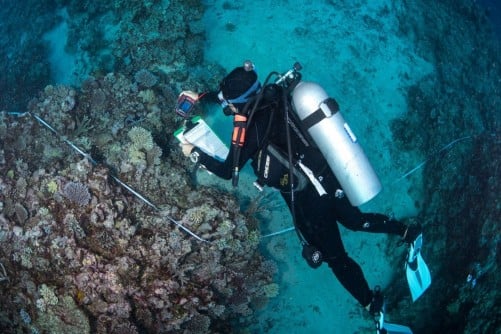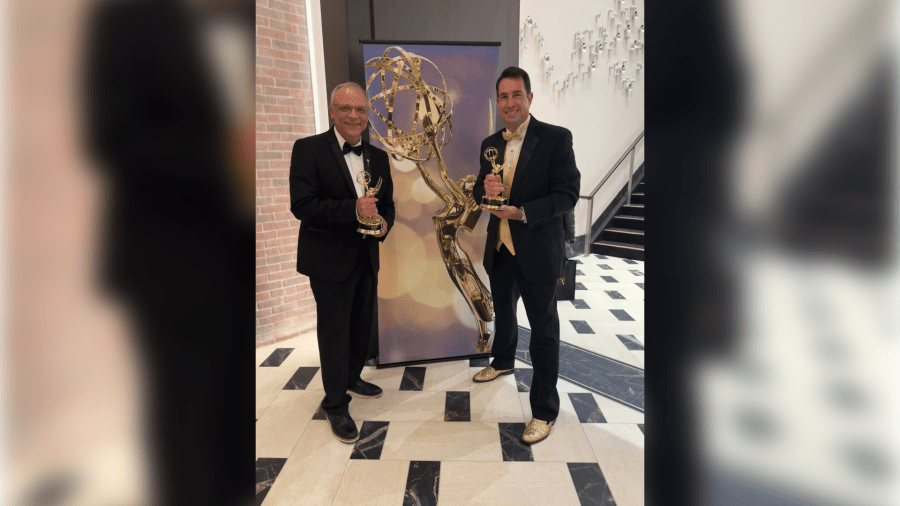UPDATE: The Wildlife Conservation Society (WCS) has just been awarded $2 million from the Bezos Earth Fund to advance artificial intelligence solutions aimed at tackling critical environmental challenges. This funding, announced on October 23, 2025, is part of a global initiative to enhance efforts against biodiversity loss and climate change.
This urgent project will leverage AI technology to transform the monitoring and protection of coral reefs worldwide. WCS plans to identify and safeguard the most climate-resilient reefs, essential for preserving biodiversity and supporting coastal communities as well as aligning with global 30×30 conservation goals.
“This award helps us turn AI innovation into real-world conservation impact,” stated Dr. Emily Darling, Director of Coral Reef Conservation at WCS. “With support from the Bezos Earth Fund, we’re advancing foundational AI models for coral reef monitoring and inviting divers and citizen scientists everywhere to join the effort to map, monitor, and protect the reefs most likely to survive climate change.”
Launched in 2024, the Bezos Earth Fund’s AI for Climate and Nature Grand Challenge is a $100 million initiative designed to harness AI to address the dual crises of climate change and biodiversity loss. It connects innovators with resources and mentorship from major technology partners including AWS, Google.org, NVIDIA Corporation, Microsoft Research, AI2, and Esri.
Dr. Amen Ra Mashariki, Director of AI and Data Strategies at the Bezos Earth Fund, emphasized the importance of responsible AI development: “These projects show how AI, when developed responsibly and guided by science and local knowledge, can strengthen environmental action and ensure its overall impact on the planet is positive.”
The MERMAID AI project, a key component of this initiative, aims to enhance coral reef monitoring and policy impact in over 50 countries. “Our goal is to make advanced AI tools accessible to every scientist and diver working to protect coral reefs,” said Kim Fisher, Lead Software Engineer for MERMAID. “The power of open, shared models is that they grow stronger with every image and every user.”
Over the next two years, WCS will integrate global citizen science apps for divers into MERMAID, build an open-source AI model capable of identifying more than 100 coral species, and produce real-time maps of climate-resilient reefs. These tools will empower local scientists, communities, and governments with vital data needed to protect reefs that sustain fisheries and coastal livelihoods.
“Our science is already showing that there are coral reefs around the world that can withstand even extreme climate impacts,” said Dr. Stacy Jupiter, Executive Director of WCS’s Global Marine Program. “As a key pillar of our newly launched Coral Reef Strategy, WCS is excited to harness cutting-edge computing technology to help identify more of these high integrity climate-resilient reefs for targeted management action.”
The Wildlife Conservation Society combines the power of its zoos and an aquarium in New York City with a Global Conservation Program spanning more than 50 countries. WCS is committed to protecting over 50 percent of the Earth’s known biodiversity in partnership with governments, Indigenous Peoples, and local communities.
As coral reefs face unprecedented threats from climate change, this funding and innovative approach could mean the difference between survival and extinction for many species. The urgency of this project cannot be overstated, and WCS is poised to lead the charge in coral reef conservation with this groundbreaking initiative.
For more information on WCS’s efforts and updates on the MERMAID project, visit www.datamermaid.org and follow WCS on Twitter @WCSNewsroom.







